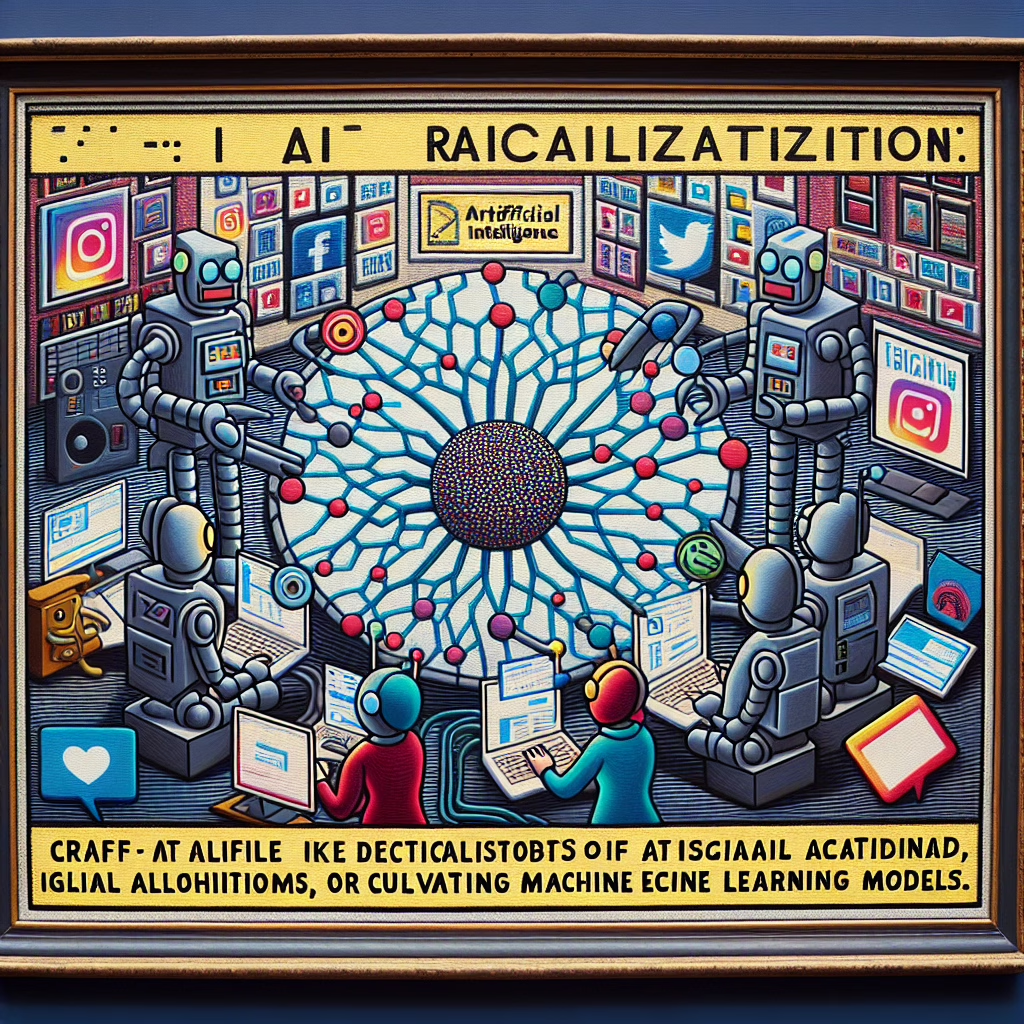The Quirky World of AI Radicalization
In the dazzling and sometimes bewildering landscape of technology in 2025, we find ourselves grappling with the curious phenomenon of AI radicalization. This isn’t just a fancy term cooked up by tech enthusiasts over a cup of overpriced coffee; it’s a genuine concern that has crept into our digital lives, much like that one relative who shows up unannounced during the holidays. As artificial intelligence becomes increasingly influential in shaping our thoughts and opinions, it raises the question: is it possible for AI to steer us toward extremism? Buckle up, because we’re about to dive into this fascinating topic!
Understanding AI Radicalization
Imagine you’re scrolling through your favorite social media platform. You click on a video that’s intriguing, and before you know it, the algorithm has you spiraling down a rabbit hole of content that makes you question if pigeons are actually government drones. This is where AI radicalization comes into play. The algorithms designed to keep you engaged often lead to echo chambers, amplifying extreme views while muting moderate voices. Think of it as a digital funhouse mirror—everything looks distorted and exaggerated.
As we peer deeper into the mechanics of AI radicalization, it’s essential to understand how these systems operate. They learn from user behavior, feeding on clicks, likes, and shares like a hungry toddler at an all-you-can-eat buffet. This constant data mining allows them to predict what might catch your eye next, often leading to increasingly extreme content. It’s like they’re trying to win a game where the prize is your undivided attention.
The Role of Social Media in AI Radicalization
Social media platforms have become the breeding grounds for AI radicalization. They encourage users to engage with sensational content, creating an environment ripe for misinformation and extreme ideologies. You might think you’re just sharing a funny cat meme, but behind the scenes, algorithms are working hard to steer conversations toward more divisive topics. It’s like being at a party where someone keeps bringing up politics at every chance—exhausting, right?
In 2025, as we navigate this digital jungle, it’s crucial to remember that while algorithms can seem like malevolent forces from science fiction movies, they’re not inherently evil. They simply reflect our collective behaviors and preferences. If we want a more balanced online environment, we need to actively engage with diverse perspectives and promote content that encourages healthy discourse. Here’s how:
- Seek Diverse Content: Challenge yourself by engaging with materials from various viewpoints, not just those that align with your own.
- Use Fact-Checking Tools: Equip yourself with resources that verify information before sharing it.
- Moderate Your Exposure: Limit time spent on platforms where AI radicalization seems particularly rampant.
How Can We Combat AI Radicalization?
So what can we do about this rising tide of AI radicalization? First off, let’s start by taking personal responsibility. No more mindlessly scrolling through inflammatory content like it’s popcorn at the movies! Instead, seek out reliable sources and diverse viewpoints that challenge your thinking. Think of it as an intellectual gym session; sometimes it burns, but in the end, you come out stronger!
Furthermore, we can advocate for better algorithmic transparency from tech companies. It’s essential for these giants to share how their systems work and what kind of data they use. By holding them accountable, we can help shape an online landscape that promotes understanding rather than division. Consider joining digital literacy campaigns which empower users to take control over their online interactions.
The Future: A Balanced Digital Ecosystem?
Looking ahead to 2025 and beyond, there’s hope for a more balanced digital ecosystem where AI radicalization doesn’t reign supreme. Imagine a world where technology fosters civil discourse instead of fueling division—a utopia! While this may sound like wishful thinking, small changes can lead to significant impacts over time.
Let’s also consider the role of education in combating AI radicalization. By teaching critical thinking skills and digital literacy from an early age, we can empower future generations to navigate the complexities of online information responsibly. After all, knowledge is power—even more so than the latest smartphone model!
Your Thoughts Matter!
As we ponder these pressing issues around AI radicalization, we invite you to join the conversation! What are your thoughts on how technology shapes our views? Have you encountered content that made you rethink your stance? Share your experiences in the comments below—we’d love to hear from you!
A special thanks to The Atlantic for their insightful article that inspired this piece! For further exploration on this topic, consider reading about the impact of technology on our daily lives as seen in Kuwait International Bank Enhances Self-Service Banking with Diebold Nixdorf Technology and how digital platforms influence consumer behavior in The best Prime Day deals on Amazon devices.

